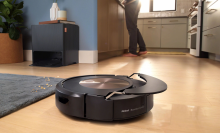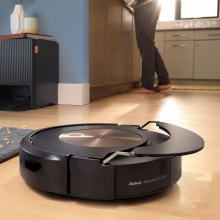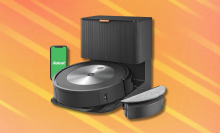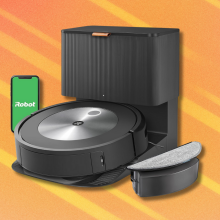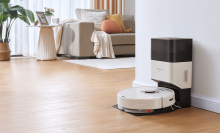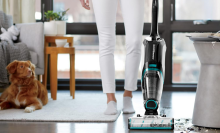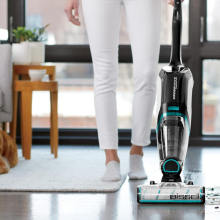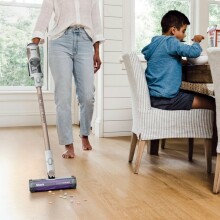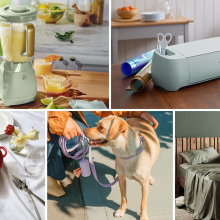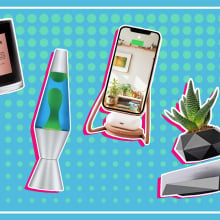Size: Think about size both in terms of the dimensions of the vacuum itself and how much space the vacuum takes up while it's charging. The shortest robot vacuums are near or slightly under three inches tall while others reach past five inches. Most non-self-emptying docks aren't bigger than a shoe and can be squeezed inconspicuously into a tight corner or under furniture to maximize your space (assuming that there's sufficient space out front for the robot vac to return).
Automatic emptying: Because robot vacuums are typically under four inches tall, their onboard dust bins are also small and require frequent emptying. (Dustbins fill up particularly quickly in homes with pets.) A self-emptying vacuum takes that job out of your hands, emptying itself into a larger dustbin in its charging dock that holds weeks of dirt without needing to be dumped. You'll want to rule out those with a behemoth of a base, but some slim auto-empty docks don't require much more space than the width and depth of the robot vac itself.
Mopping: If the majority of your space is hard flooring, a robot vacuum that can also mop clears up the space you were using to store a manual mop or Swiffer.
Smart mapping and virtual boundaries: All robot vacuums, even cheap ones, are equipped with sensors and drop detection. But more advanced models take a more strategic route by using LiDAR scanners to map out your home. Through the app, the owner can send the vac to specific rooms or areas of the home, and draw virtual boundaries around areas the vac shouldn't go, like near the pet's food bowls or through the toy corner's perpetual pile of Legos.
Noise: The drone of a vacuum feels a lot louder in close quarters. If you're concerned with keeping kids, roommates, or neighbors on the other side of a thin wall undisturbed, you'll want a robot vac that's been hyped for its sound level. Keep in mind that auto-empty docks create the most noise of the whole process, though some have a shorter, quieter whoosh than others.

